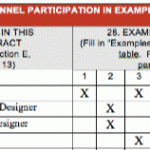You know how you are always baffled why everybody basically agrees with you except that one person? What’s that person’s problem? Can’t they see that everybody else would obviously see things your way?
The problem is that you are suffering from the False Consensus Effect. We are terrible at predicting the behavior of others, yet we believe their actions and decisions would align with ours. This is the False Consensus Effect in a nutshell.
Many people quite naturally believe they are good ‘intuitive psychologists’, thinking it is relatively easy to predict other people’s attitudes and behaviours. We each have information built up from countless previous experiences involving both ourselves and others so surely we should have solid insights? No such luck. In reality people show a number of predictable biases when estimating other people’s behaviour and its causes. And these biases help to show exactly why we need psychology experiments and why we can’t rely on our intuitions about the behavior of others. One of these biases is called the false consensus effect. In the 1970s Stanford University social psychologist Professor Lee Ross set out to show just how the false consensus effect operates in two neat studies (Ross, Greene & House, 1977). You can read more about these studies at False Consensus Effect — PsyBlog.
How the False Consensus Effect Can Wreak Havoc on Your Marketing
You probably think you have some insight into how your client thinks and how they make decisions. You don’t. Instead, you have some false idea based on your own biases and opinions.
This can cause you or your firm to pitch what you want to pitch rather than what your client wants. I was once in a meeting where an executive from a large pharmaceutical company told a designer, “If you mention that one more time, I’m taking these drawings and leaving.”
What compelled the designer to pitch what he wanted to pitch? And why was he so shocked at the executive’s comment? It was the False Consensus Effect.
How can you battle the False Consensus Effect at work? Leave a comment.






Speak Your Mind